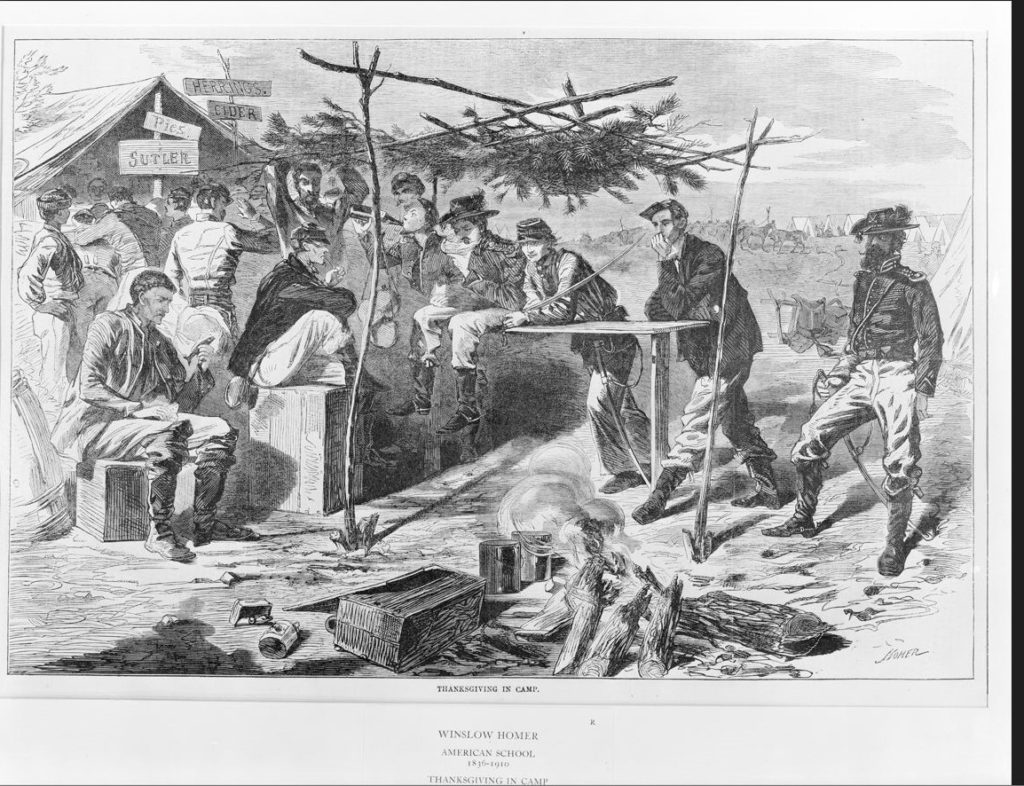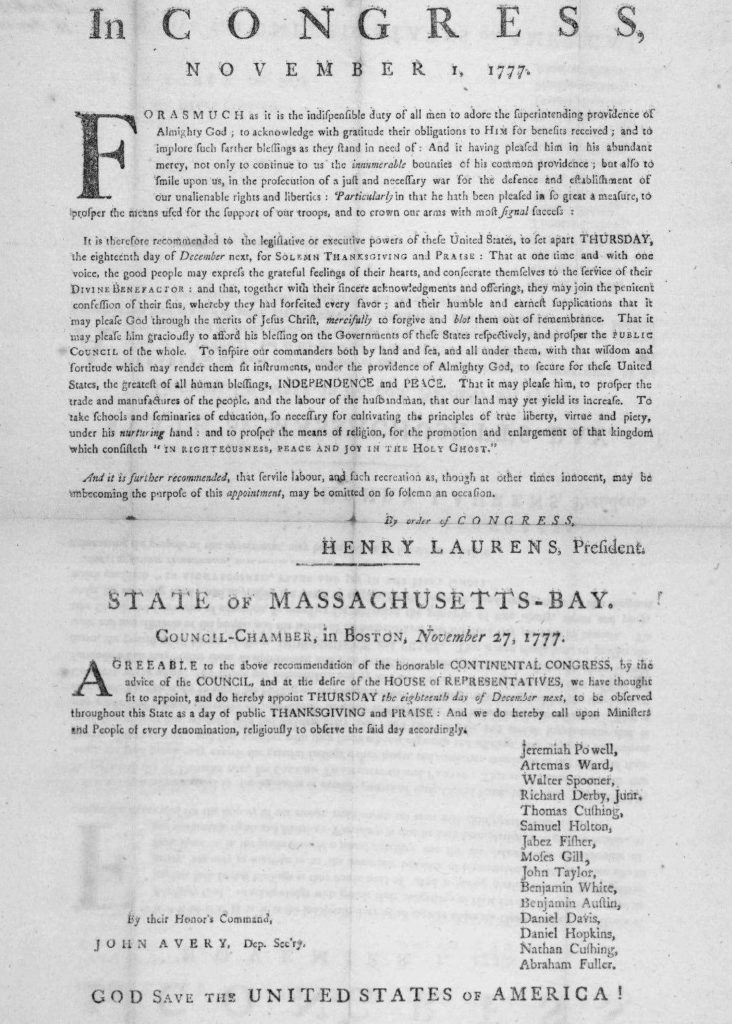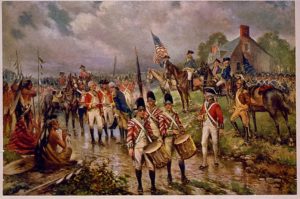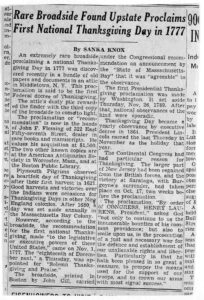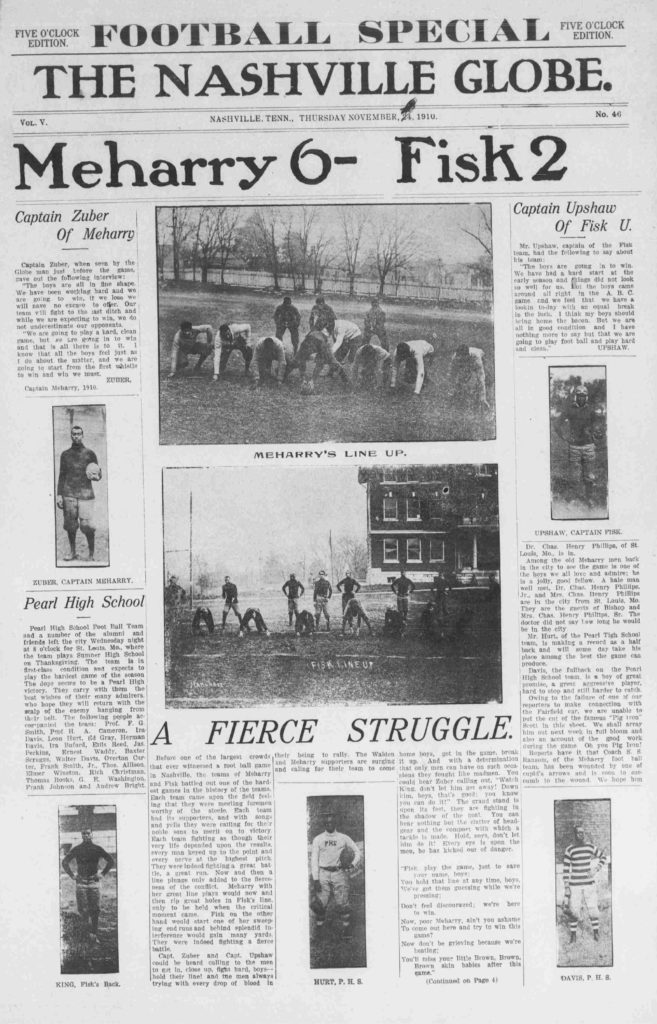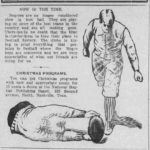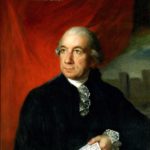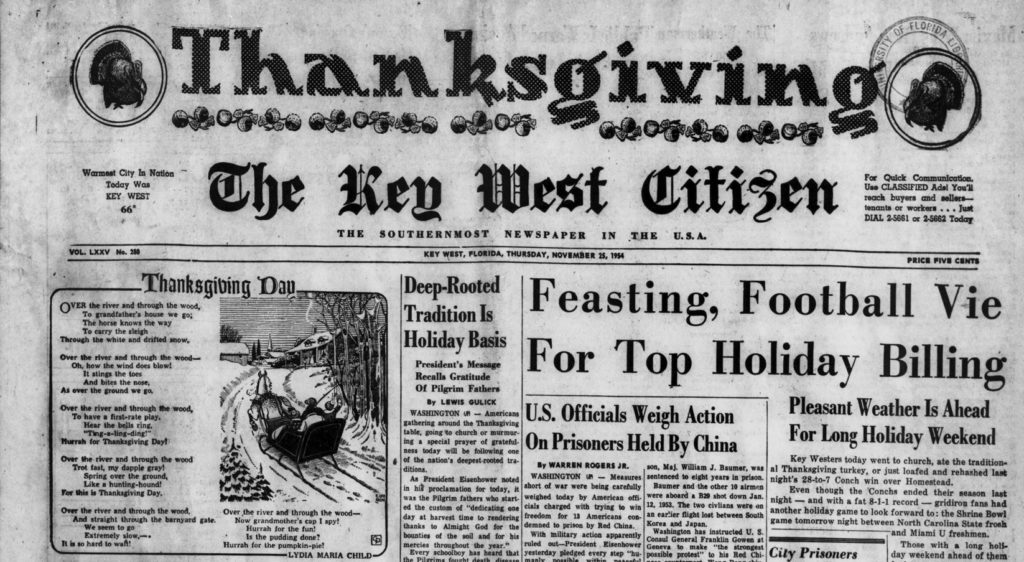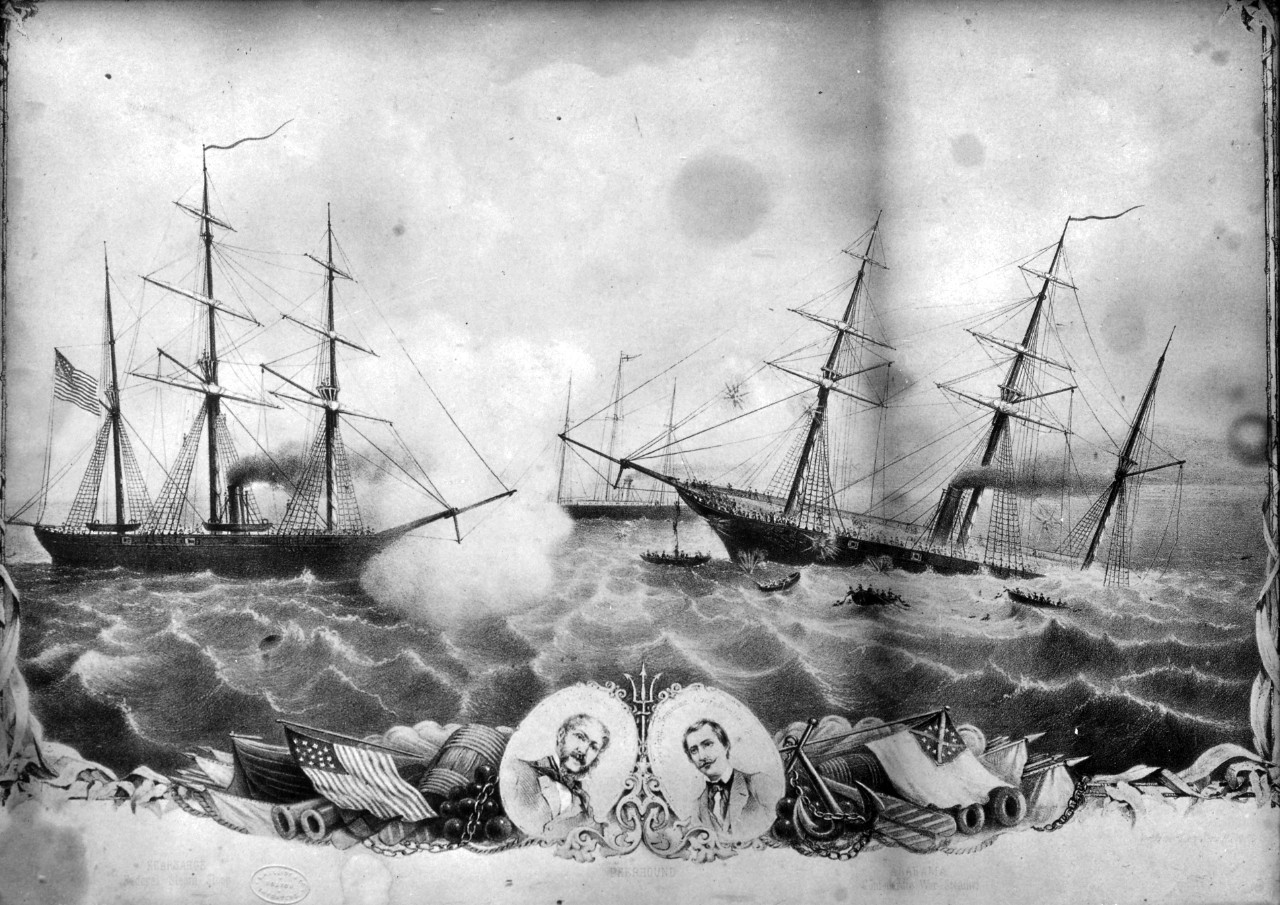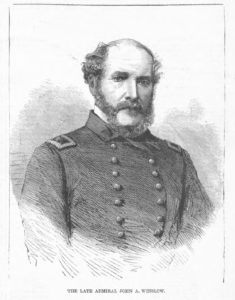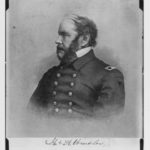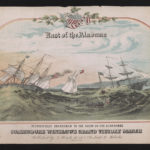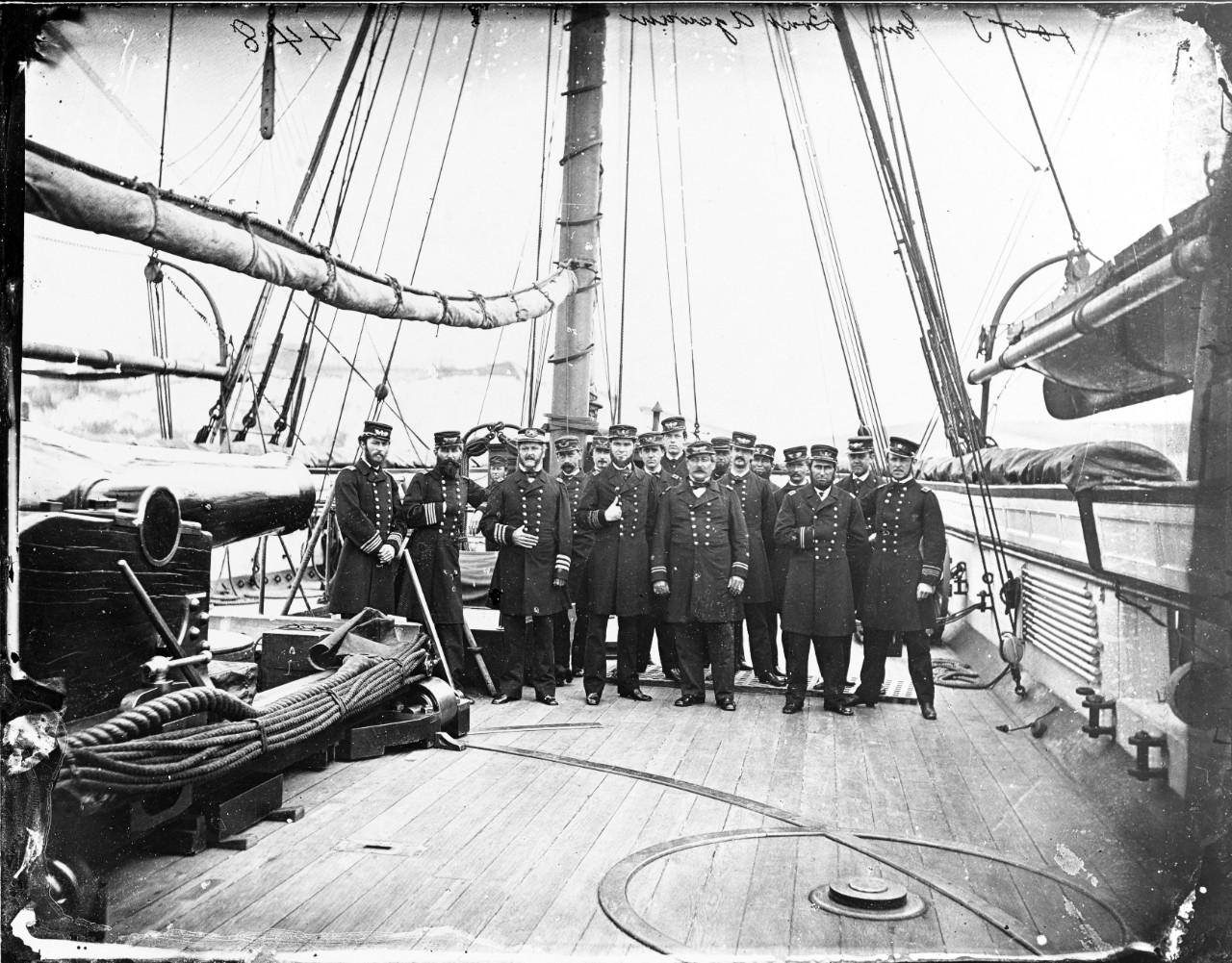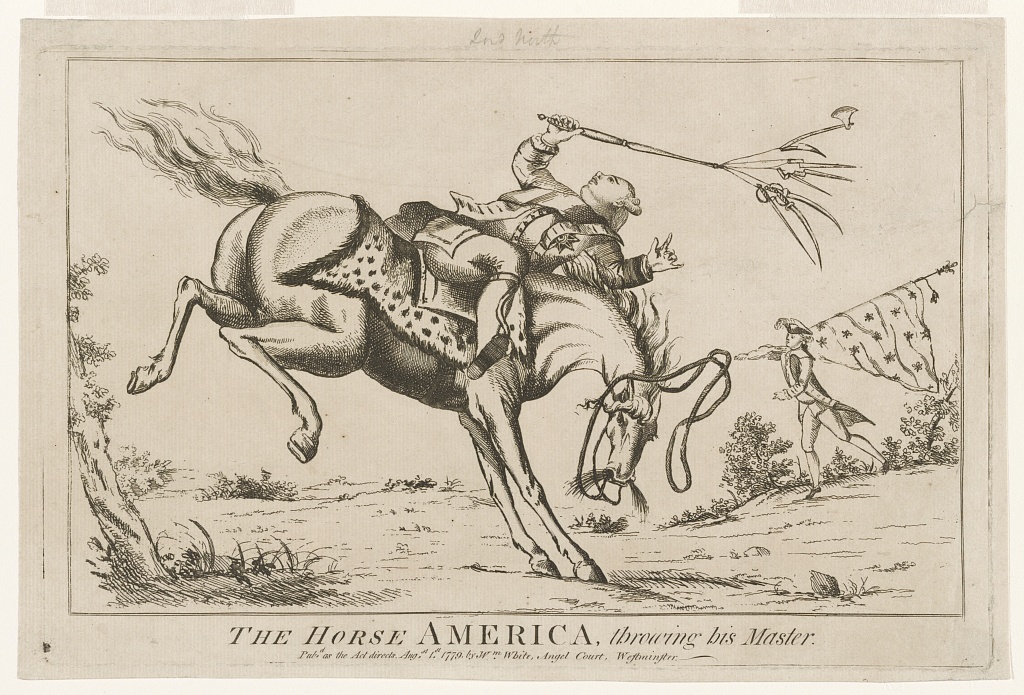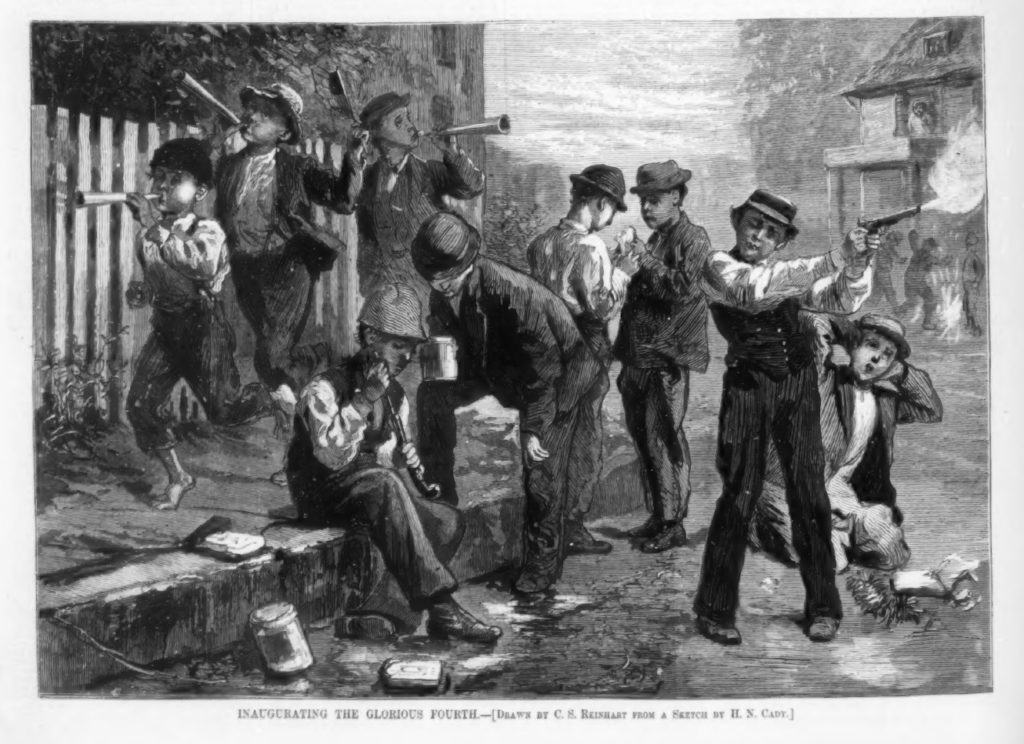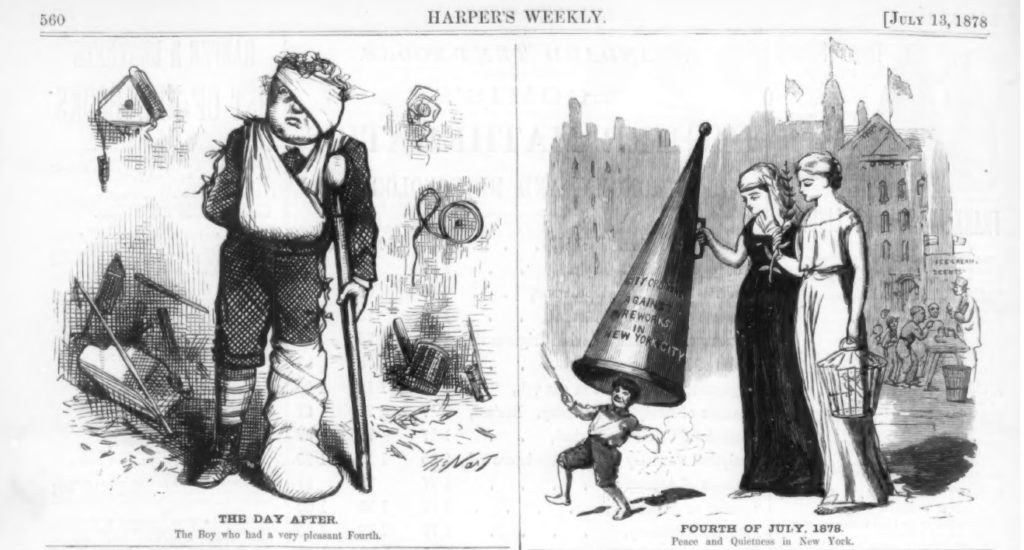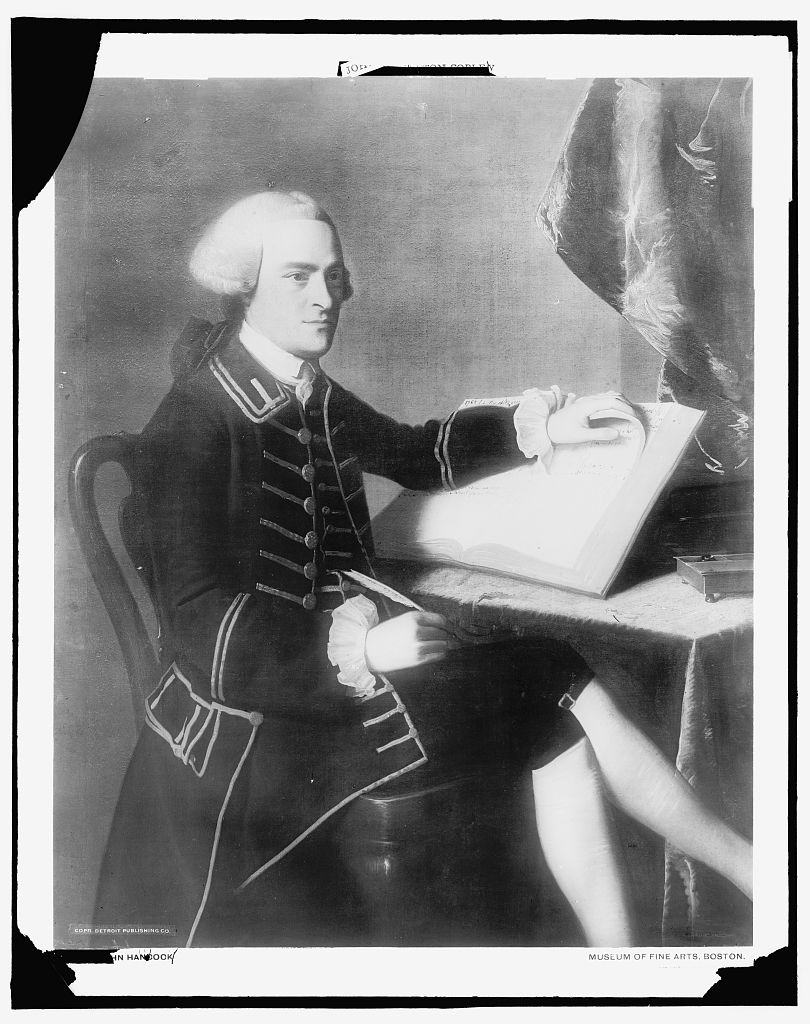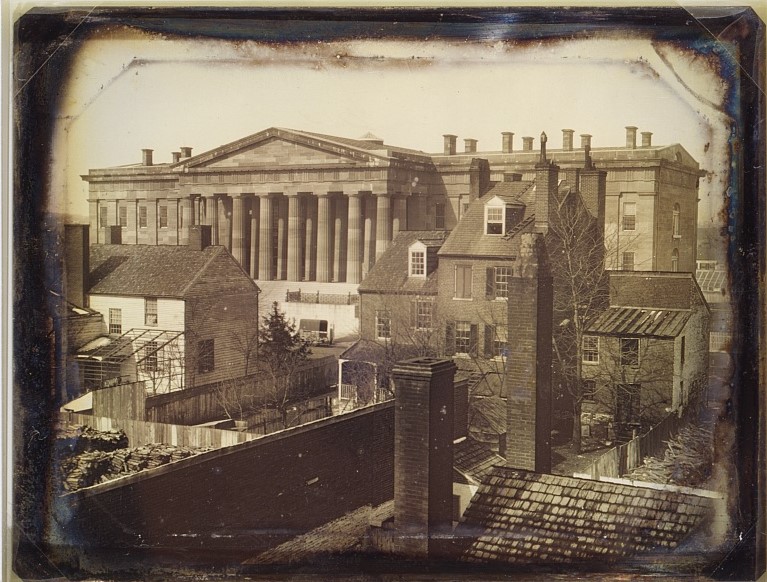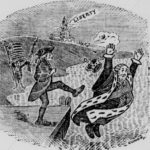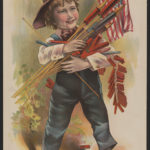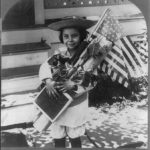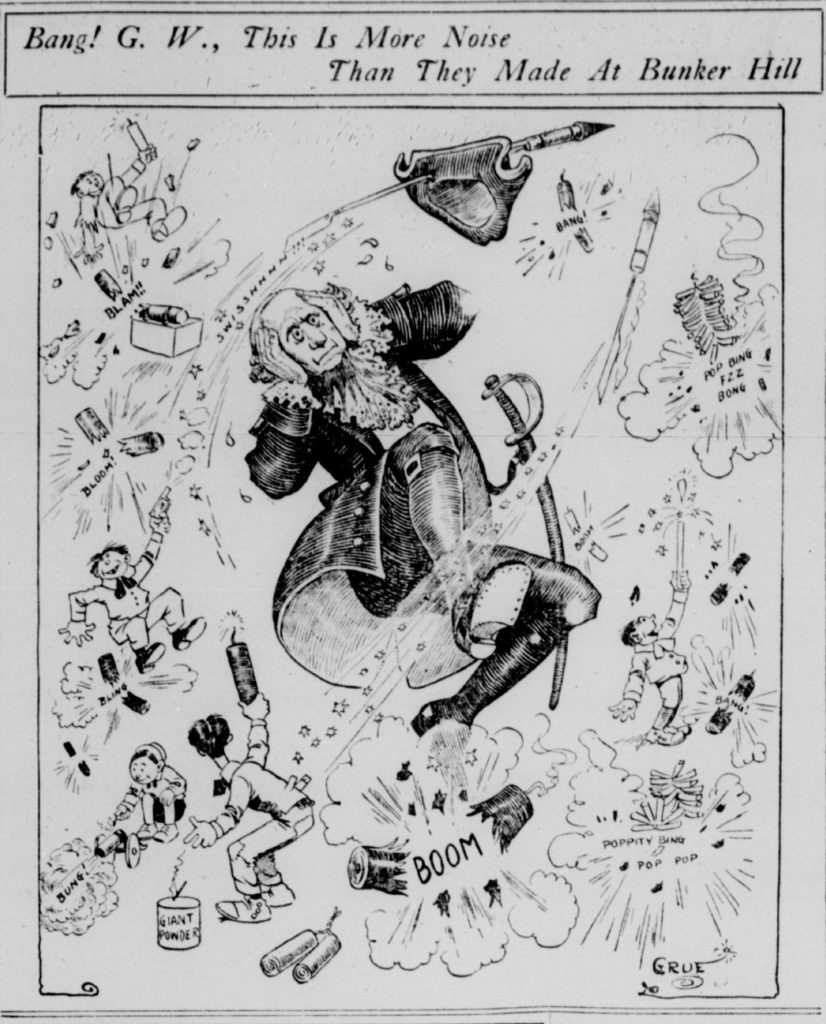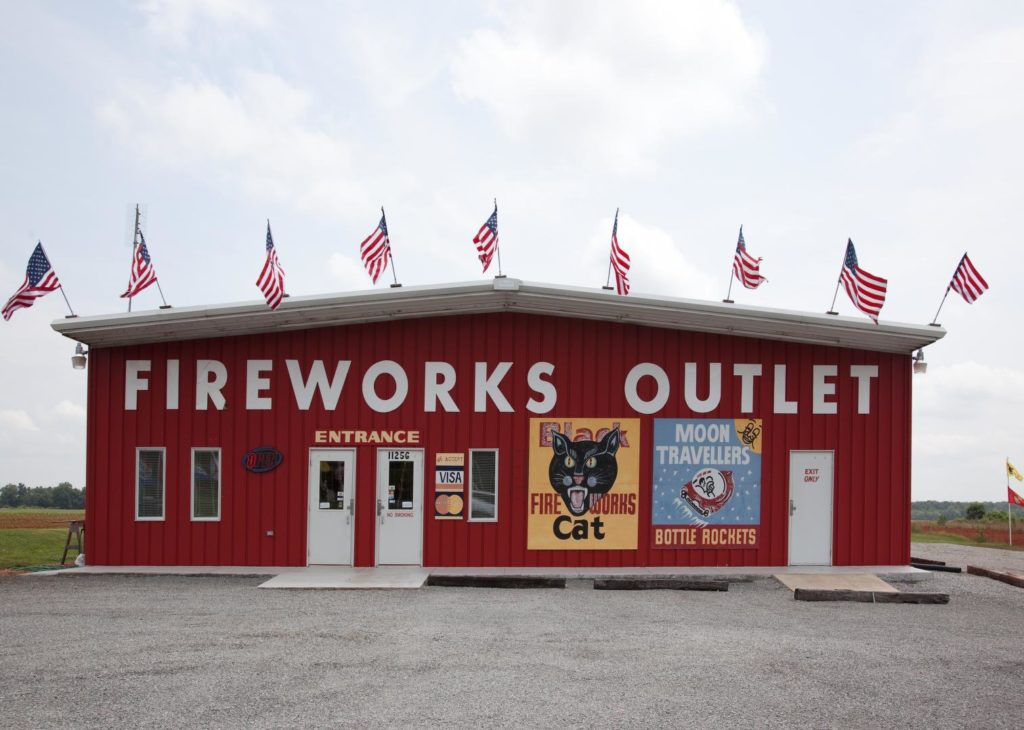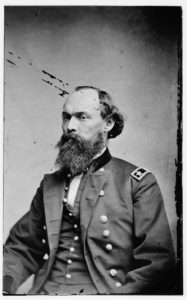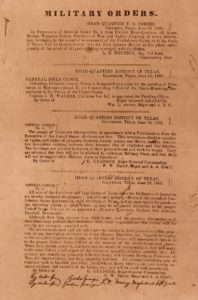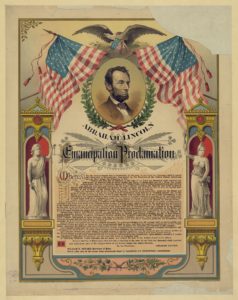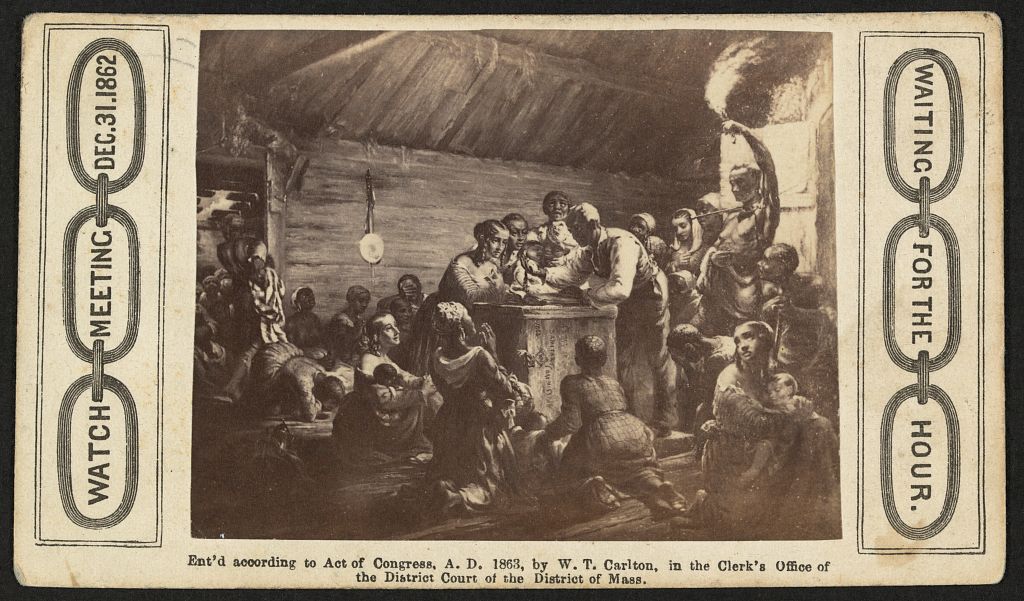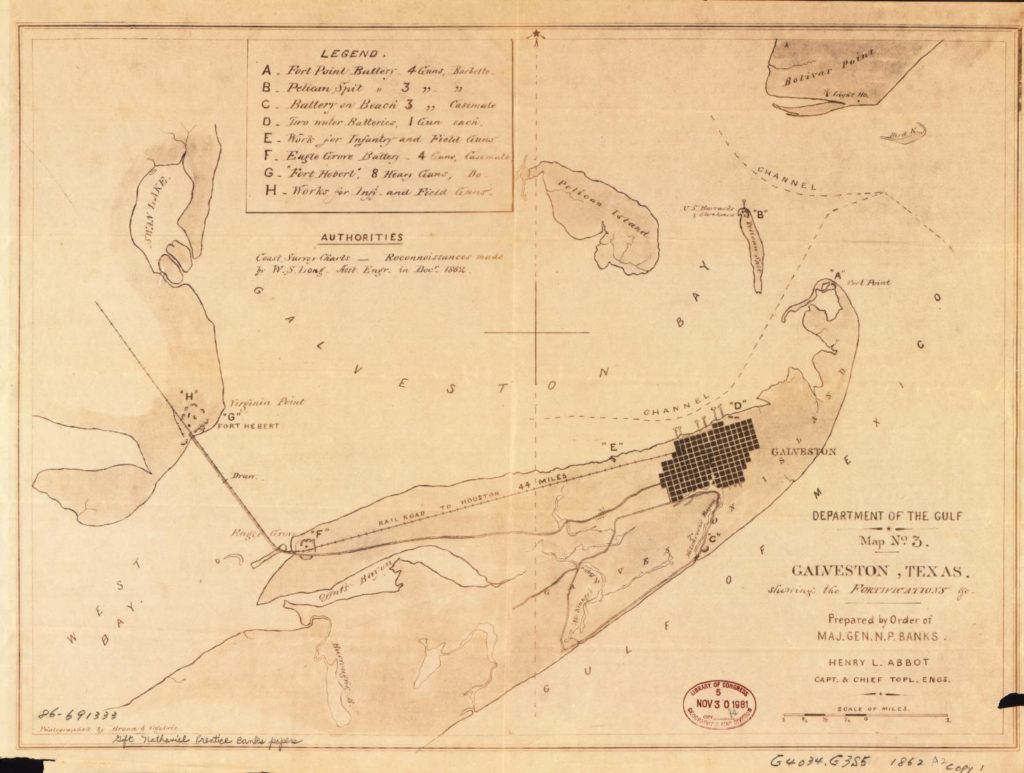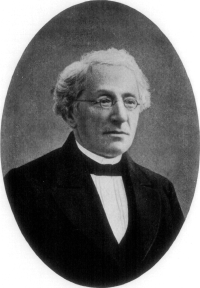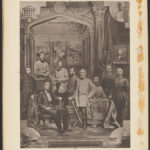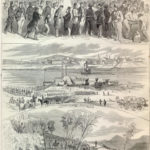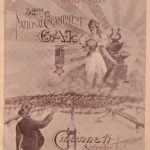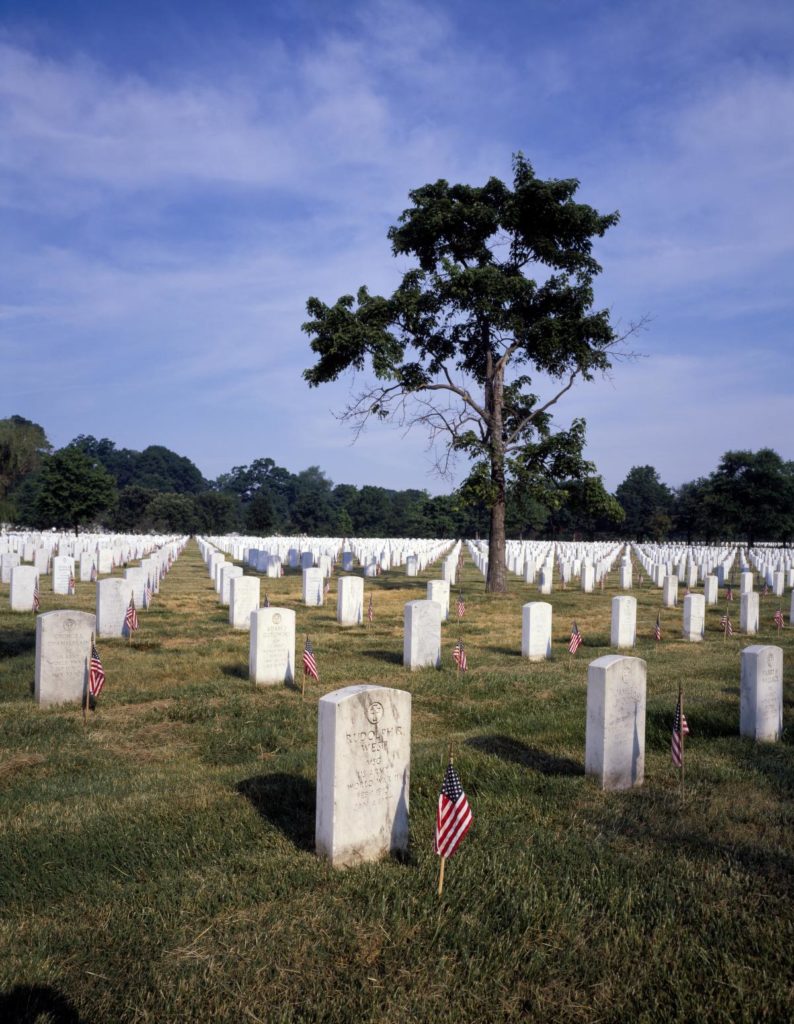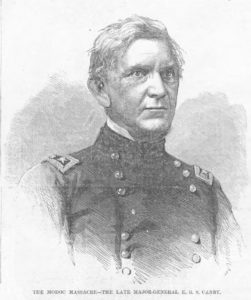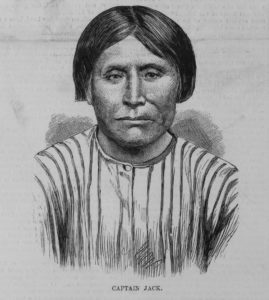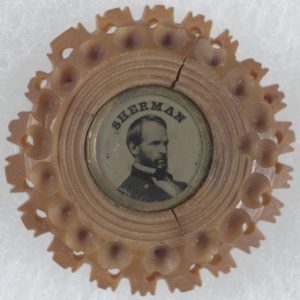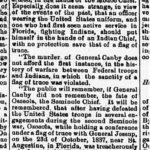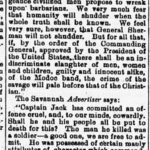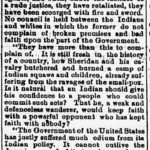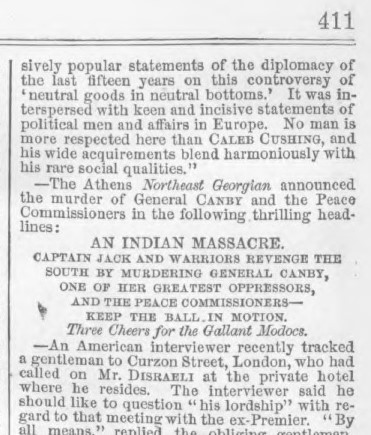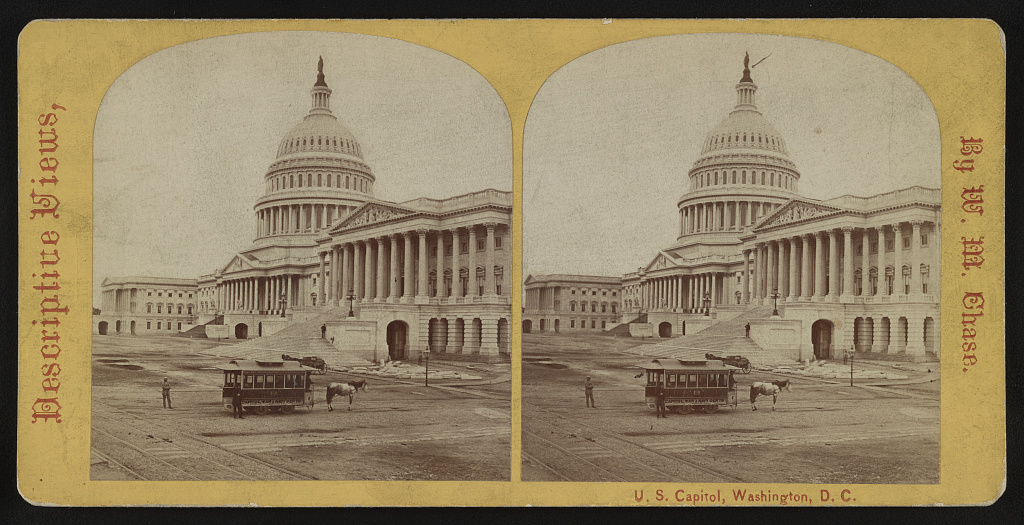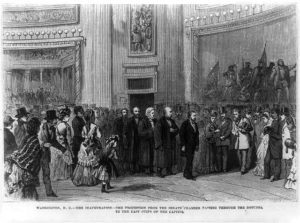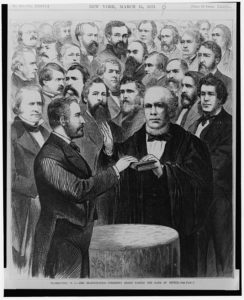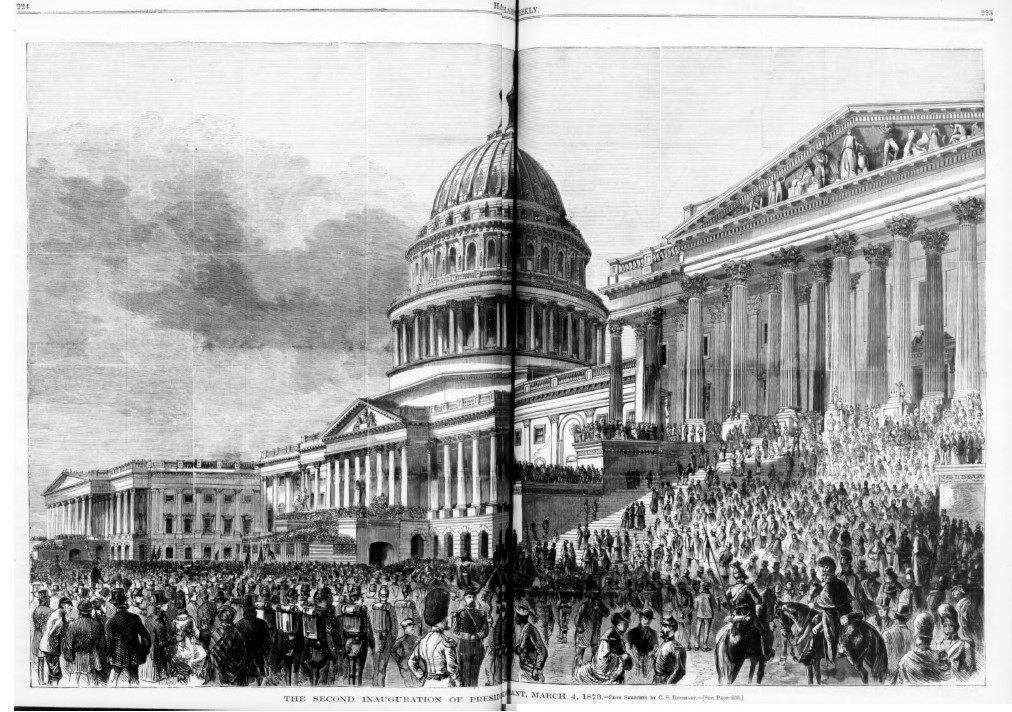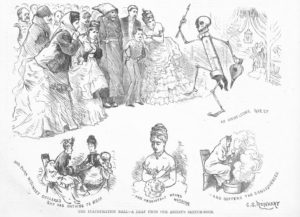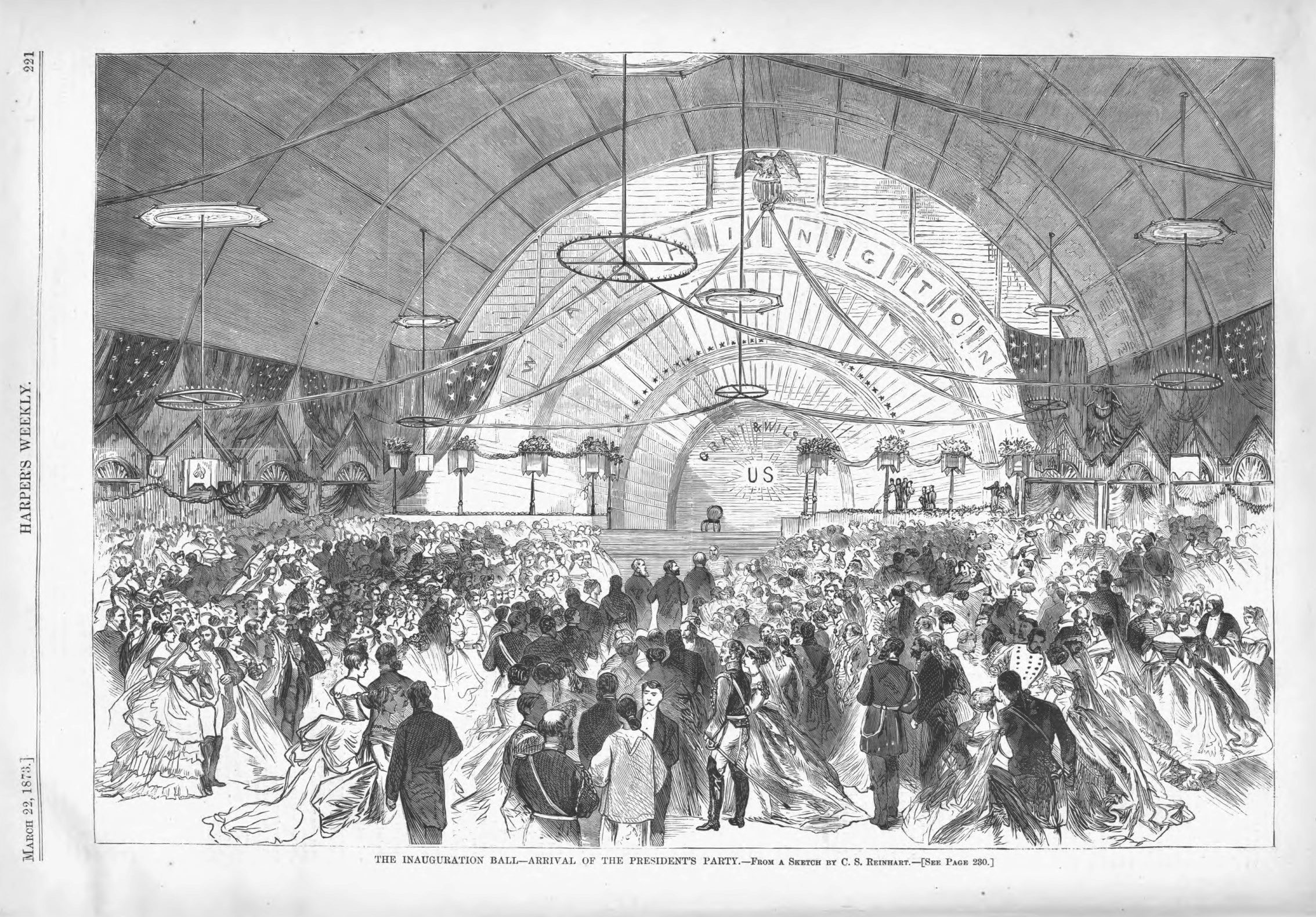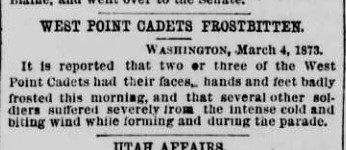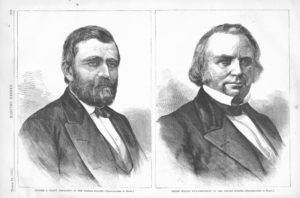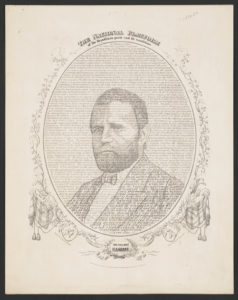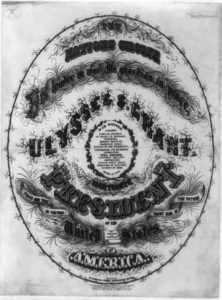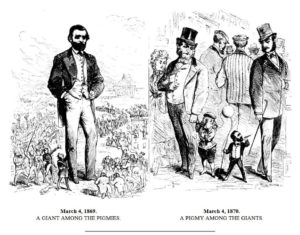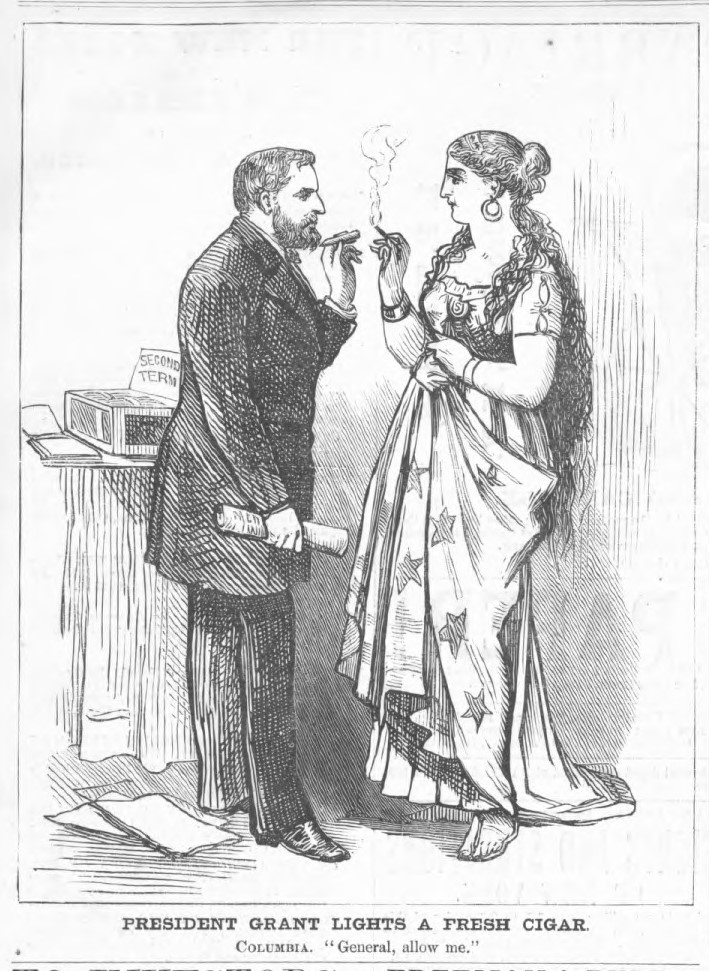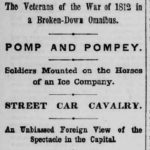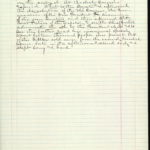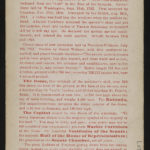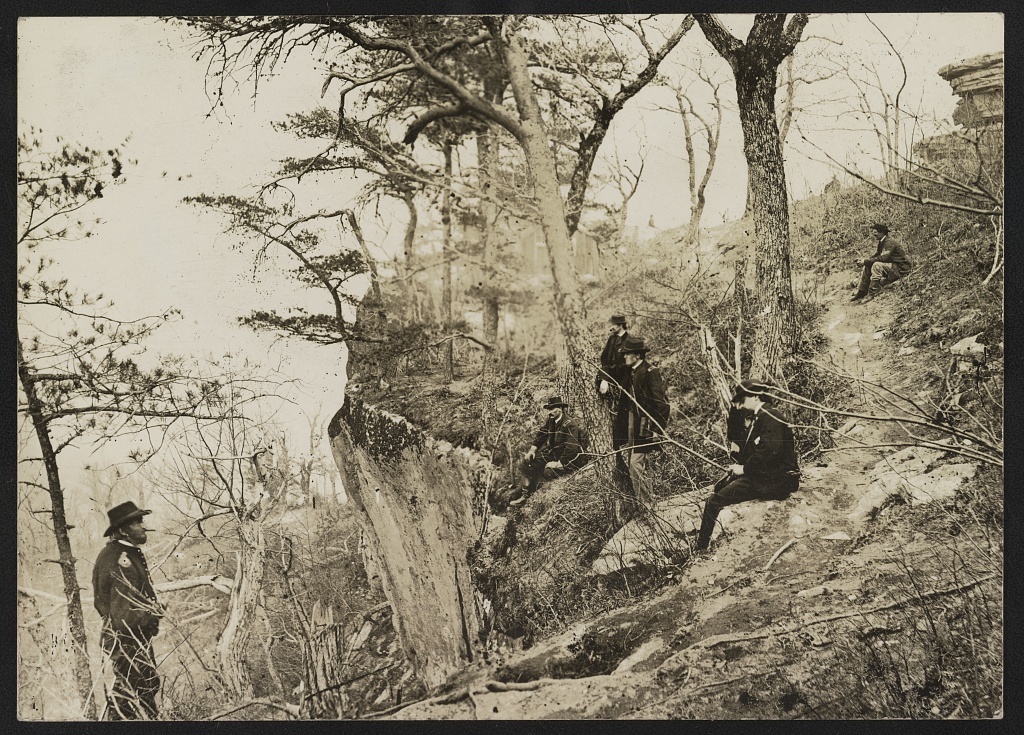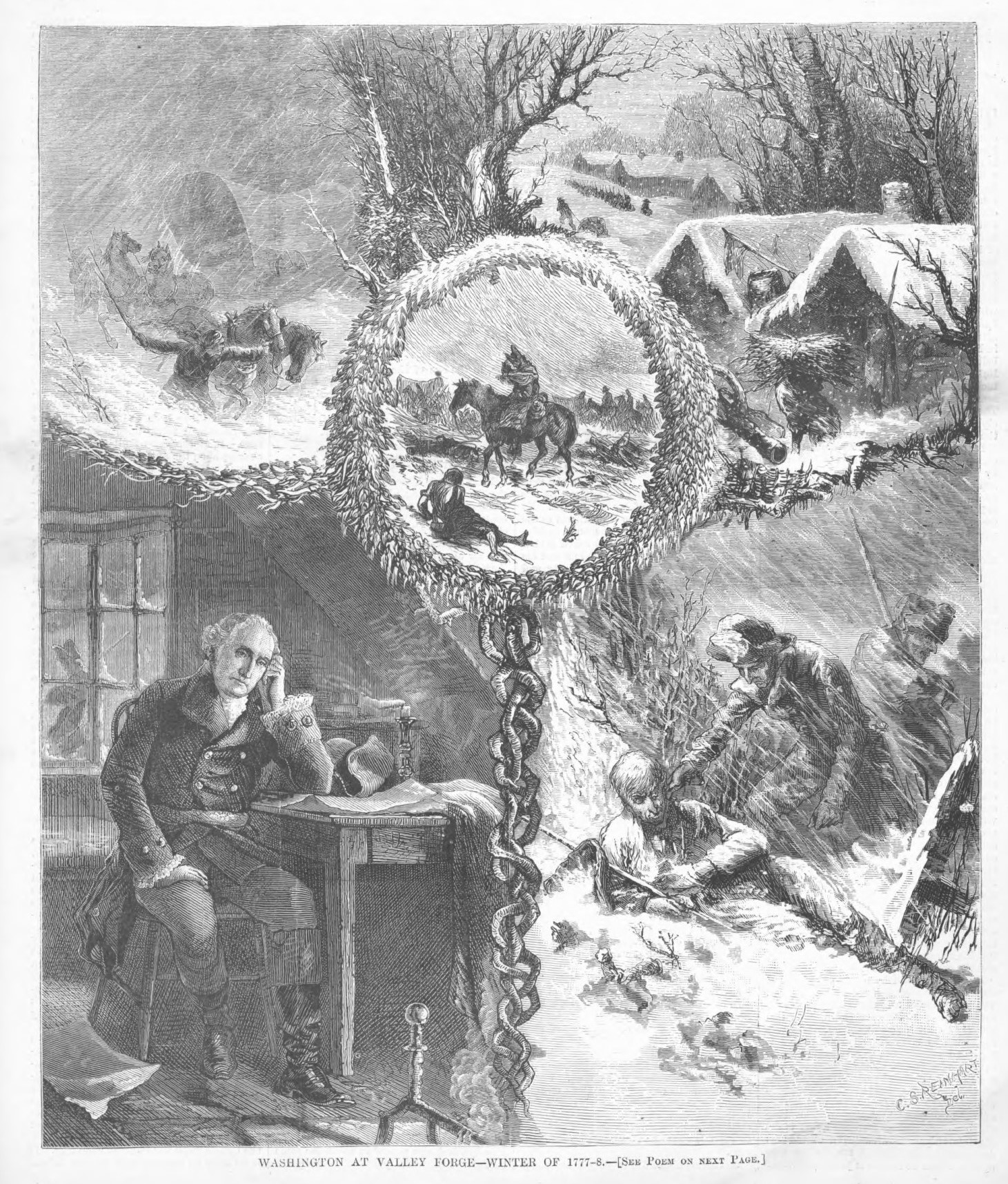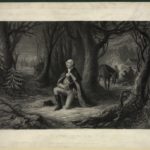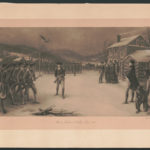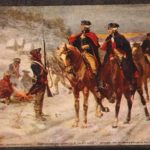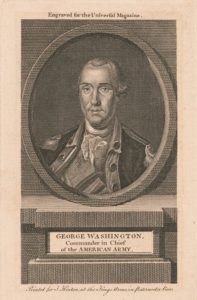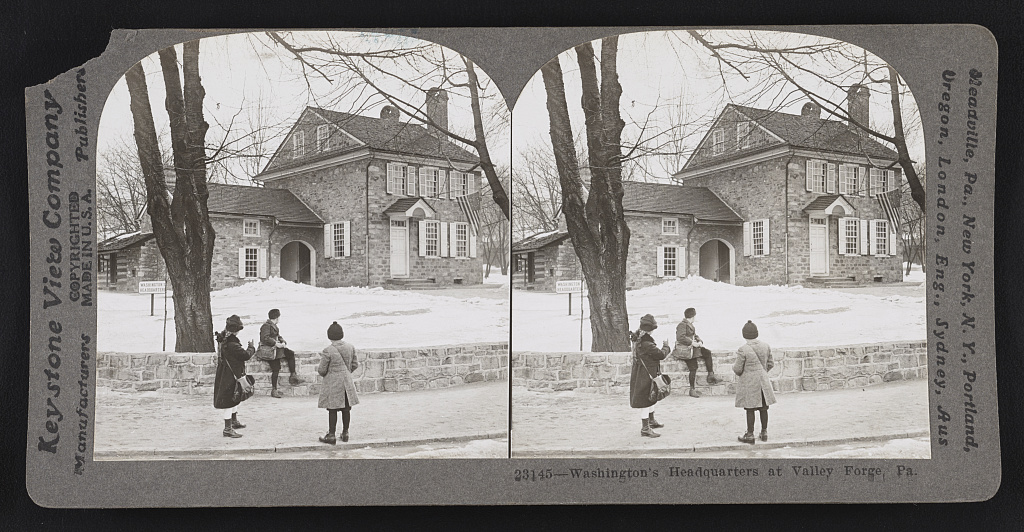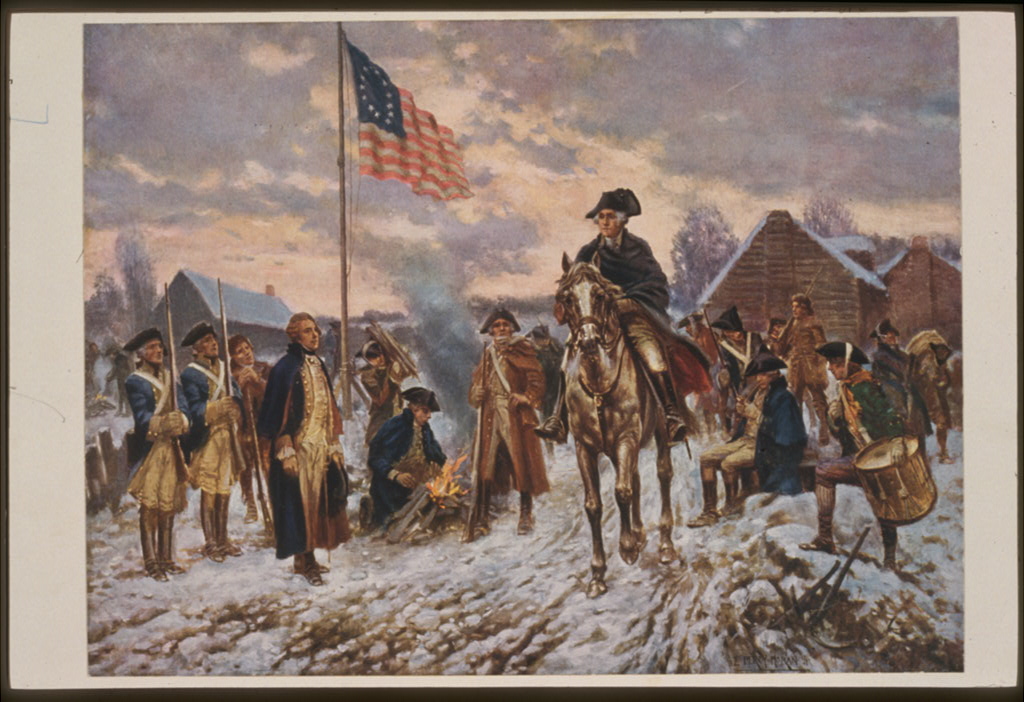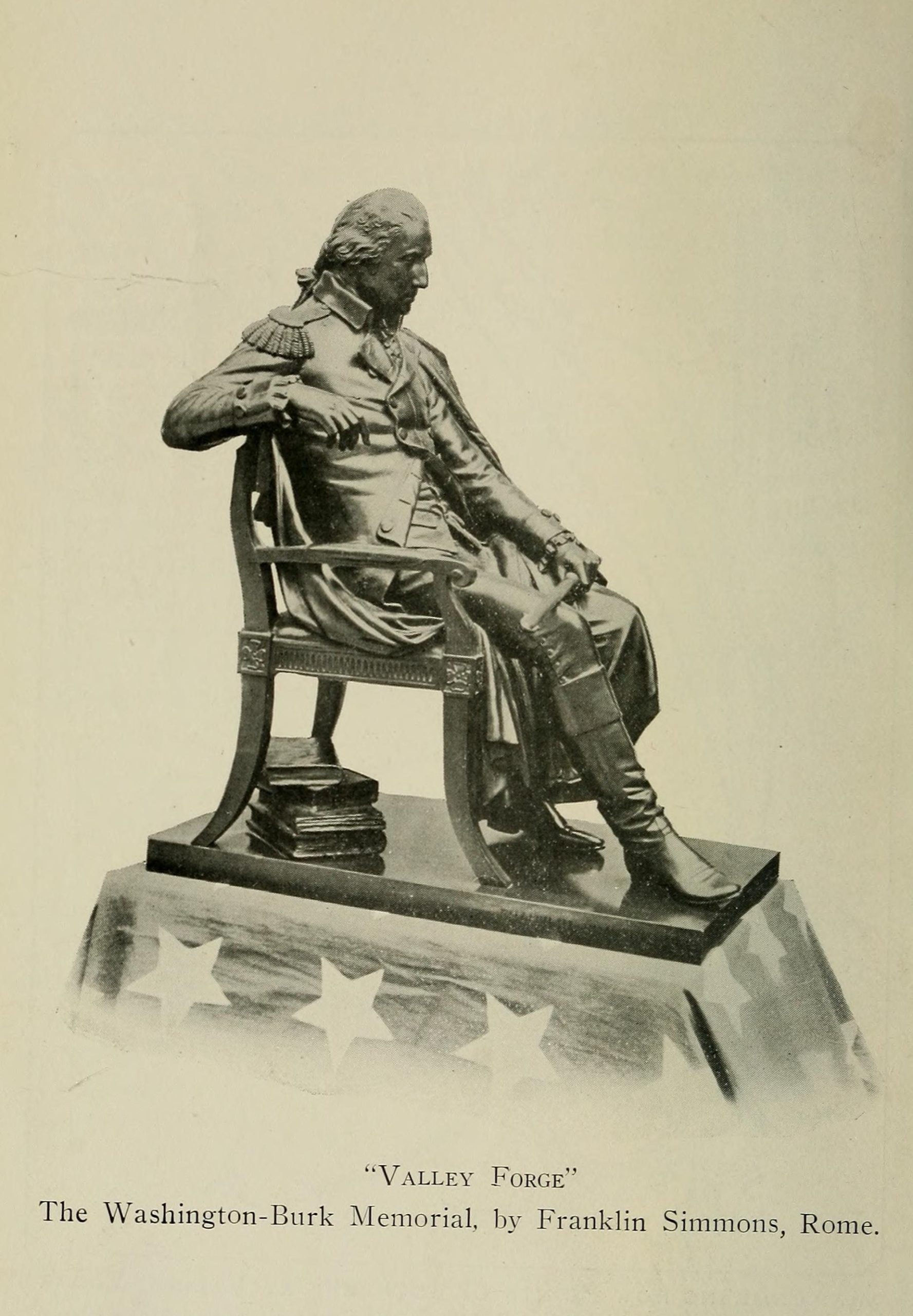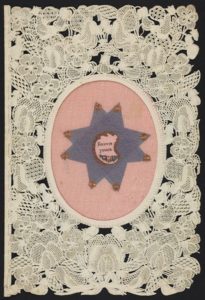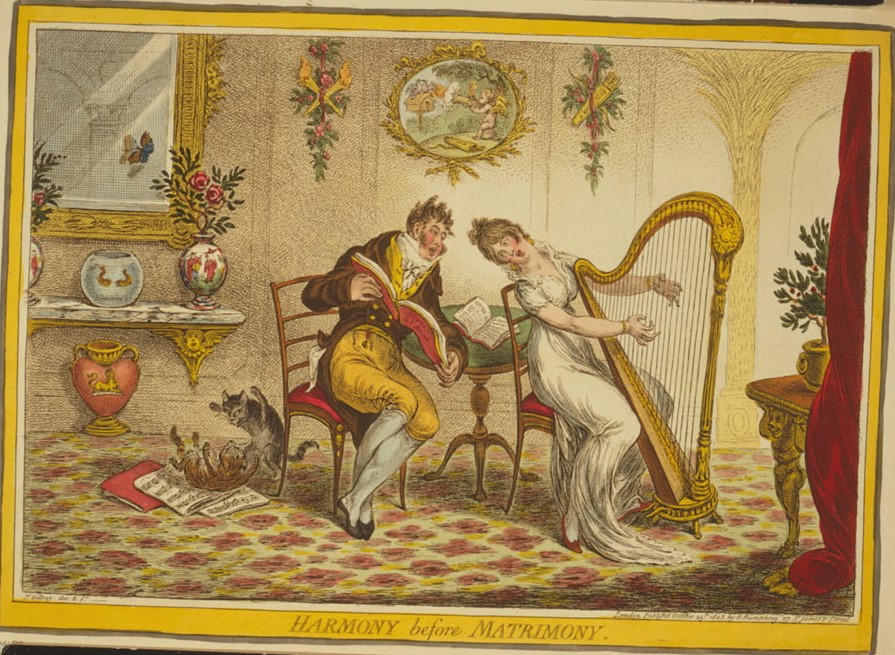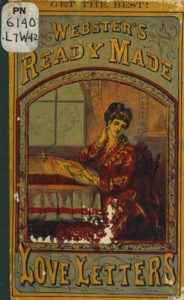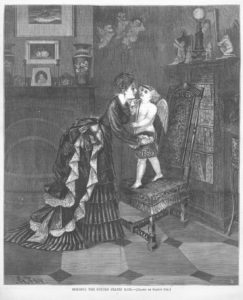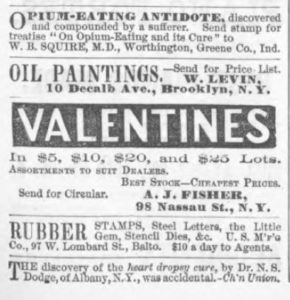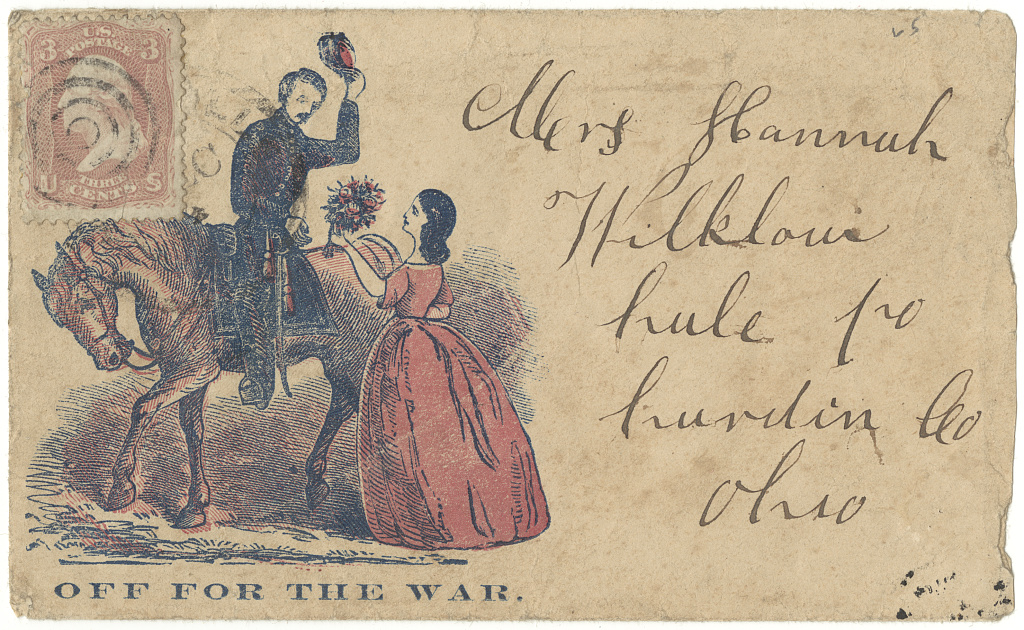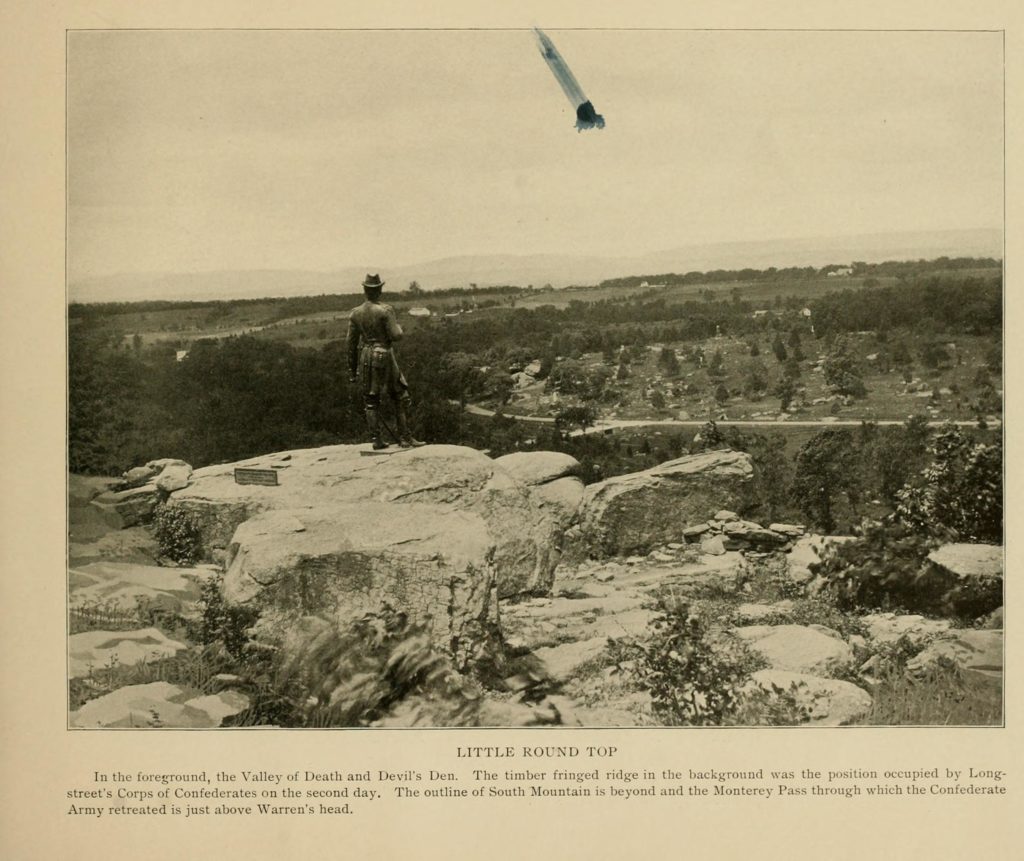
“This country is fortunate in its Gettysburg”
Thirty years after the Battle of Gettysburg, Union General Daniel Sickles’ management of the Third Corps on the second day of the battle was still controversial. From the August 24, 1893 issue of The National Tribune:
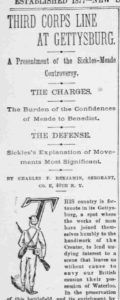
THIS country is fortunate in its Gettysburg, a spot where the works of man have joined themselves humbly to the handiwork of the Creator, to lend undying interest to a scene that leaves us without cause to envy our British cousins their possession of Waterloo. In the preservation of this battlefield, and its enrichment by monuments to those who fought or fell there, one sees how human nature craves visible expression for sentiments that stir it deeply.
Gettysburg perpetual and transcendent, so, necessarily, are its controversies; many and various, and shared in about equal number and measure between the hosts that massed, respectively, on and about the Seminary and Cemetery Hills. One of them, coveniently [sic] known to history as the Meade-Sickles controversy, is the subject of this present brief article.
Thanks to the chief actors in this dispute, a full and clear apprehension of its elements is at command. This is not a small matter, where arguments are so often profitless because they revolve about, without touching each other.
It was nearly seven years after the battle when Gen. Meade, his knowledge and judgment refined by time and reflection, his lips and heart unsealed by the privacy of his communication,
OPENED HIS MIND
unreservedly to Col. Benedict, of Vermont, upon the subject of the advancement of the Third Corp line, at the extreme left of the Union position, on the second day of Gettysburg. His confidence remained unviolated for 16 years; then the publication of his letter to Benedict summoned Gen. Sickles, as it were, by a voice from the grave, to his defense. This he rendered with a full measure of that skill in the presentation of an argument or statement for which he is justly distinguished.
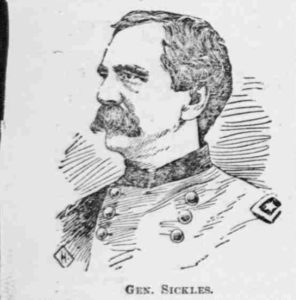
Gen. Meade’s final complaint against his former Lieutenant may be thus concisely and accurately summarized: Gen. Sickles was ordered, on the morning of the second
day, to relieve Geary and occupy his position. He knew the position, for Geary informed him of it. That position included Round Top, where Geary had a brigade posted. Geary advised Sickles of the character and importance of Round Top, yet Sickles did not occupy it nor take measures for its occupation.
About noon of that day the Commanding General personally told Sickles that his right was to be at Hancock’s left and his left on Round Top, which elevation the Commanding General pointed out to him. Despite the orders he received, Gen. Sickles placed his right three-quarters of a mile in advance of Hancock and his left a quarter mile in front of the base of Round Top.
Nothing but the advance of the Fifth Corps, a matter not within the knowledge or control of Sickles, saved Round Top from the enemy, who, by planting his artillery there, would have
COMMANDED THE WHOLE FIELD,
with consequences most disastrous to the Union army. This advancement of his lines by Gen. Sickles caused a loss upwards of 12,000 men in killed and wounded, besides practically destroying the Third, half destroying the Fifth, and heavily damaging the Second Corps.
In return for these sacrifices, the Union army gained nothing but a compulsory retreat to the true and prescribed position of the Third Corps.

The losses of this day, added to those of the first day, greatly impaired the spirit and efficiency of the army, and deprived its commander of that audacity in the offense that otherwise he might have possessed.
Little Round Top, not Round Top proper, is presumably the hill to which Gen. Meade refers as occupied by Geary and pointed out by himself to Sickles; yet the accuracy or looseness of the designation leaves uncertain the exact picture of the left that Gen. Meade had in his mind when writing the letter to Col. Benedict. He fails also to take into account the losses and damage inflicted on the enemy in the fight that ended in the forcing back of the Federal line to Cemetery Ridge and Little Round Top, or to apportion the decline of morale in his troops between the affairs of the first and second days.
Small criticisms these in the abstract, perhaps; but not such when Gen. Sickles is so pointedly charged with responsibility for the
LOSS AND DAMAGE
to the army and its commander.
Now for the defense made by Gen. Sickles on the appearance of the Benedict letter. He says, in effect and substance, that he never acquired other knowledge of Geary’s position than the general definition of it by Gen. Hancock in sending Geary to the left in the afternoon of the first day.
Geary’s troops were out of position and massed when he saw them, and Geary gave him no advice nor information on any subject. His order to relieve Geary came after Geary’s troops had moved over to the right, and following Hancock’s definition he took up the high ground to the right of Round Top, commanding the Emmitsburg and Taneytown roads.
After doing this and connecting with the Second Corps to his right he had not the troops with which to occupy Round Top, but aware of its character and importance
he asked Gen. Meade for troops to occupy it.
Gen. Sickles denies that Gen. Meade ever told him that his left was to be on Round Top, which he says is 2,200 yards from Hancock’s left, and would have necessitated the spreading of his small corps out into a skirmish-line to have occupied so wide a front. He adds that his line in such a case would have run through swale, morass, bowlders and tangle unfit for infantry and impracticable for artillery, and that half his artillery could not have found standing room, to say nothing of manuvering.
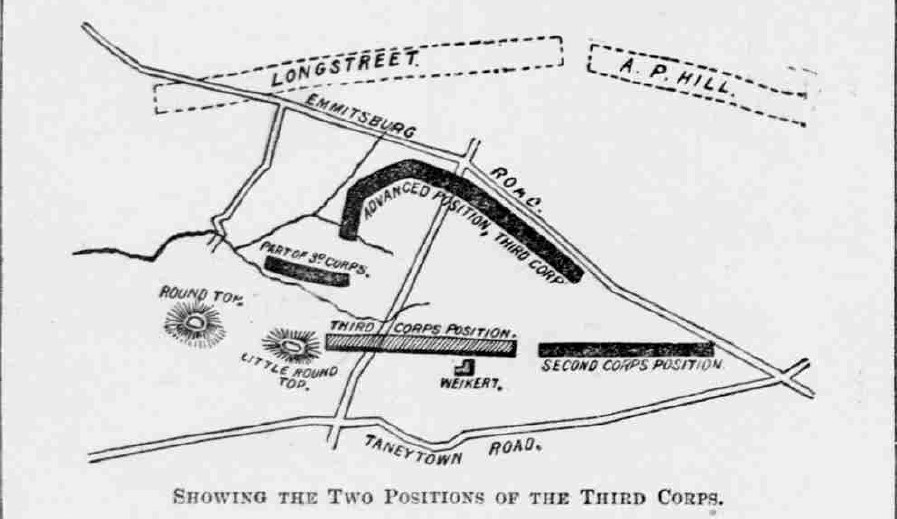
Before him would have been a commanding ridge at the service of the enemy, who would also have possessed the Emmitsburg and its intersecting roads leading in upon
the Union left.
Gen. Sickles will not permit Gen. Meade, through inadvertence or lapse of memory,
TO ACCUSE HIMSELF
of having assigned the Third Corps to a position that would, so Gen. Sickles contends, have tied his own hands and loosed those of the enemy.
Continuing his defense, Gen. Sickles says that he posted his command in exact conformity to the one, only order he received, from first to last, on the subject of his position. Birney’s Division took up the line that Hancock had ordered Geary to hold, its left at Round Top, its right thrown toward the Cemetery and connecting with Humphreys’s Division, posted between Hancock and Birney.
The picket-line was in the Emmitsburg road. He cites Gen. Meade’s testimony before the Congressional Committee on the Conduct of the War, in 1864, that Sickles
expressed dissatisfaction with the line assigned him; that he told Sickles to post his troops and take up ground as he deemed best within the limits of the general instructions, and that he had sent Gen. Hunt, the Chief of Artillery, to examine some positions that Sickles wished to occupy, and to give the latter the benefit of his judgment about them.
Not until after all this, declares Gen. Sickles, were his lines advanced, and when, after the attack by the enemy had began, the Commanding General joined him at the front and saw his new dispositions, that commander ordered no change nor proposed any.
With regard to the preservation of Round Top by the Fifth Corps, Gen. Sickles says that no troops came to safeguard it in response to his request made early in the morning. Worse than that, Buford’s cavalry was withdrawn during the morning, uncovering and endangering the whole Union left, and that his energetic representations on this subject were without result. He states that he sent in repeated reports of the preparations the enemy was discovered to be making for an attack upon the Federal left, but these were disregarded. When the attack came ho resisted it successfully for more than two hours without assistance.
Gen. Sickles considers Gen. Meade’s estimate of more than 12,000 killed and wounded on the second day as a gross exaggeration, even if the losses due to the far-off attack on the Federal right be included. He declares that the
THIRD CORPS WAS NOT DESTROYED
in fact or effect, but that its right wing was aggressive and successful to the very close of the action. He denies that the Union forces were driven back to the positions stated by Gen. Meade, and alleges that the advanced position of his corps was held, to the end of the fight, on the right by troops of that corps, and on the left by other troops. He charges the losses that did occur to the strength and persistence of the attack, and, in part, to the delay in coming to his support.
But he asserts the enemy’s loss to have been at least as great as that of the National forces, and holds, therefore, that Gen. Meade had no cause to complain of the result.
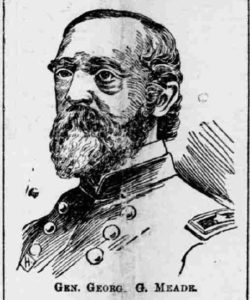
There is not room in this article to set out the evidence by which the issues raised by the Meade-Bonedict letter and the rejoinder by Gen. Sickles must be decided. A careful examination of it by the writer leads him to the conclusion that the first position of the Third Corps conformed intelligently and substantially to such orders and information as Gen. Sickles had received.
This disposes of the first charge of neglect or disobedience of orders. Whether the advancement of the line was a wise or unwise movement on the part of Gen. Sickles is a matter on which the present writer does not presume to offer judgment. The preponderance of competent military opinion seems to be against it. Yet the original position was unquestionably a bad one, as Gen. Sickles claims, and the advanced position certainly had the advantages he assigns to it, even if accompanied by disadvantages not appreciated at the time, nor since admitted by him.
Setting aside the technical question of the degree of military skill evinced by Gen. Sickles in moving to the new position instead of staying in the old one, the material question is whether the movement was justifiable at the time it was made and under the circumstances that preceded and attended it.
In 1864 Gen. Meade made the matter a mere and honest difference of judgment between himself and Gen. Sickles. To put the question in that way could afford the
latter no ground of complaint, and he did not, and does not, complain of it.
But in the Benedict letter this variance in judgment is enlarged into
CONTUMACIOUS DISOBEDIENCE
of orders, aggravated (if anything could aggravate such an offense) by enormous damage in its results. This withering accusation is the subject of the defense
made by the accused subordinate.
The accusation is unjust, though the character of Gen. Meade is a warranty that he believed it when he made it. It is in evidence that Gen. Sickles was dissatisfied with the position of his command, and communicated his objections to it, and his desire to move forward to the elevated ground in front, to the Commanding General; also, that Gen. Meade authorized him to post his command according to his discretion, within the limits of the general instructions, and, further, that he sent Gen. Hunt to inspect the proposed positions of Gen. Sickles and to advise and assist him in reference to them.
It is likewise in evidence that Gen. Hunt while desirous to avoid any direct responsibility, and to reserve for the Commanding General the opportunity of decision, was not, upon the whole, unfavorably impressed by the new positions preferred by Gen. Sickles. That he was impressed by the importance of the question whether the Third Corps should stay where it was or go forward is proved by his promise to Gen. Sickles to return at once to Gen. Meade and lay the matter before him.
Thereupon Gen. Sickles waited for the order to go or stay that he confidently expected as the result of Hunt’s visit and promise, but no order came. Convinced
that the enemy was massing in his front for an attack upon him, aware that his flank was uncovered, and believing that to remain in his then position would tie his hands while freeing those of the enemy, he advanced his lines, upon bis own responsibility, at what he conceived to be virtually the last moment of grace left to him before the storm of battle should, burst upon his command. Here, surely, was no disobedience, neglect, contumacy, usurpation of authority,or any other censurable or unmilitary conduct.
On the contrary, here was meritorious action, conducted with every attribute of personal and military-propriety. His generalship may have been grievously at fault, but the conduct of Gen. Sickles was certainly patriotic and soldierly in this affair. Seeing and understanding his situation as he did, he would have been morally culpable had he
NOT ADVANCED HIS LINES.
Two reasons appear in the Benedict letter of 1870 for Gen. Meade’s unfavorable change of opinion respecting the conduct of Gen. Sickles. The first is that Gen. Geary had then recently informed Gen. Meade that he had sent word to Sickles as to the position the latter was to occupy, including Round Top, and the importance of that elevation.
But Gen. Sickles states that he received no communication whatever from Geary; hence, Gen. Meade did him an unintentional wrong in building up a theory of purposeful neglect and disobedience upon Geary’s undelivered communication.
Secondly, Gen. Meade believed that Gen. Sickles had been active in the fomentation of an untruthful and malicious theory, the purport of which is that the advance of the Third Corps brought on an engagement which thwarted an intention and preparation by Gen. Meade to scuttle from the position at Gettysburg without a fight. Gen. Sickles, however, separates himself from those who did spitefully spread this calumny, knowing it to be false.
One cannot help wishing that an opportunity had been given to Gen. Sickles while Gen. Meade lived to vindicate himself from the latter’s unfounded suspicion
that the former was one of the slanderers who so grievously tormented the later years of the Federal commander at Gettysburg.
It was not possible, however, for Gen. Sickles to deny in the lifetime of Gen. Meade an accusation that did not come to his knowledge till after Gen. Meade’s death. They have alike, suffered in feelings and reputation from the perversion of highly meritorious and soldierly conduct into groundless occasion of reproach.
History will in the end set its obliterating seal upon the dual injustice, but the processes of history are painfully slow to those who suffer from injustice.
The advancement of the Third Corps line did not procure the glory of Gettysburg, nor dim it. The fight that followed, but was not caused by the advance, was a glorious one, illuminated as it was by the heroic courage and endurance of those who took part in it. Fought, as it was, in a position chosen, upon high motives, by a commander loyal to his chief and his duty, no shadow of reproach can fall upon it.
Lastly, it was a serviceable, not a useless fight; for it inflicted blows upon the enemy that contributed materially to the final success of the long-drawn and fiercely-waged conflict.
Much honor was justly won at Gettysburg by Meade, and by Sickles, and truth and justice could be but outraged by any attempt to uplift the one by pulling the other down.

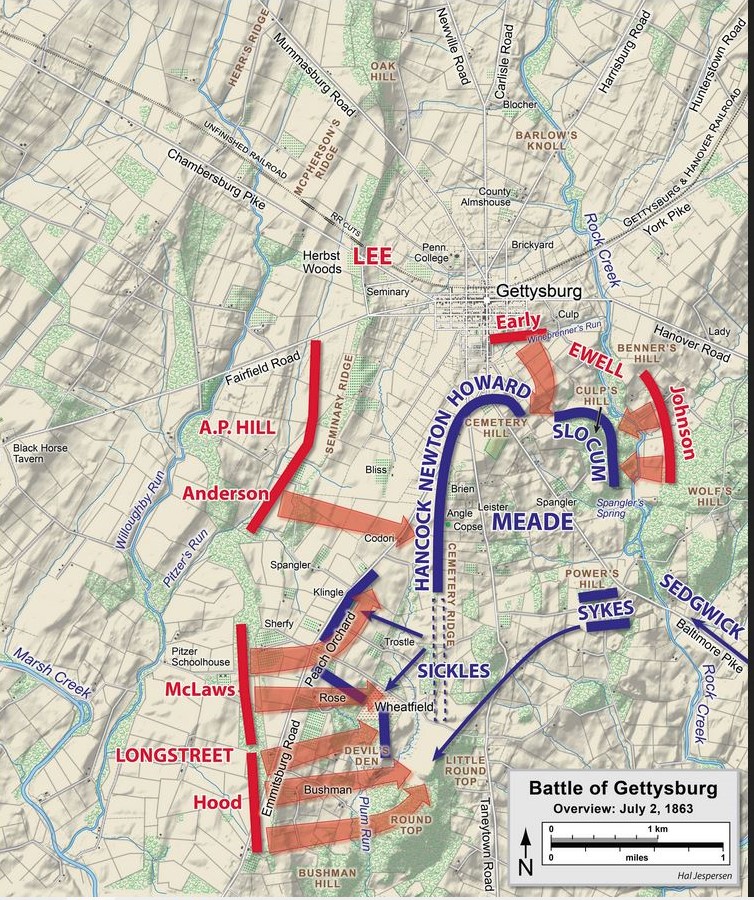
Sickles advanced
An appendix in Jacob Hoke’s 1887 The Great Invasion of 1863 also discusses the controversy. It begins (page 570, image 578) with an Abraham Lincoln anecdote:
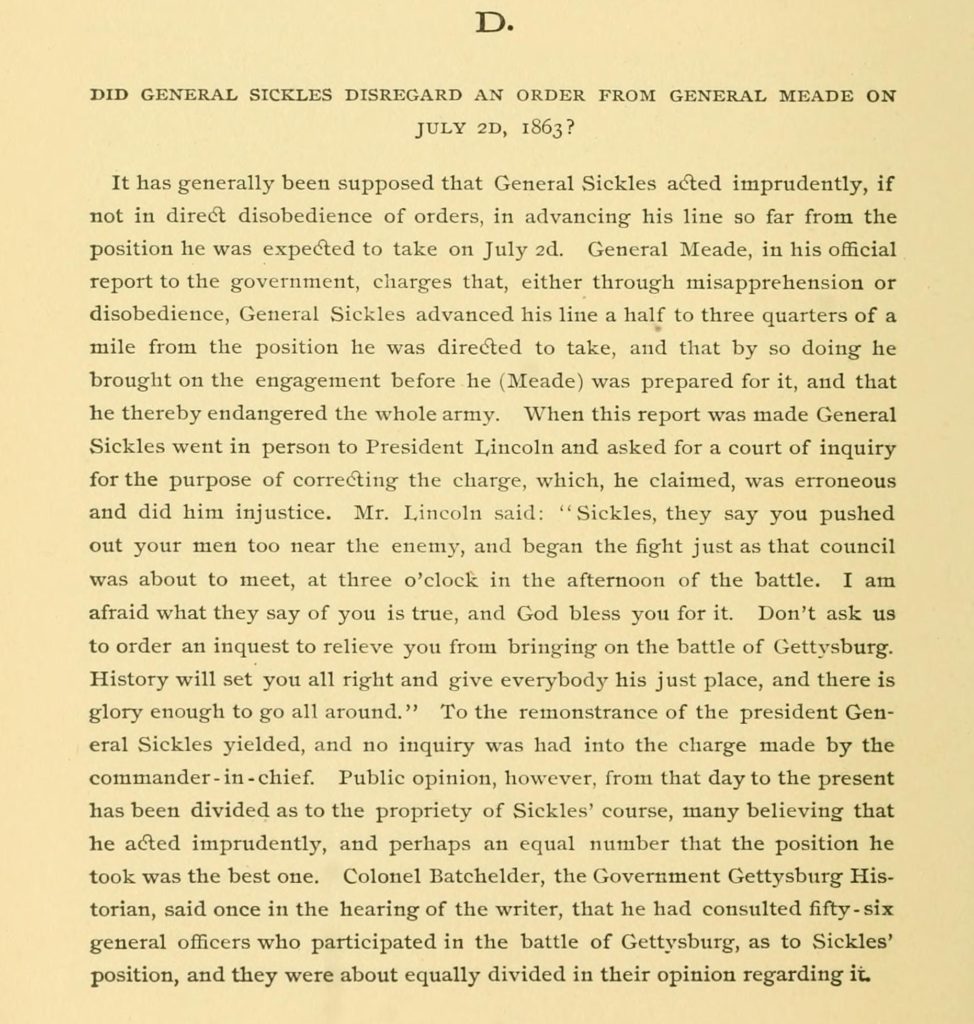
This appendix also includes part of the 1870 Meade letter to Colonel Benedict and part of an article Confederate General Lafayette McLaws wrote for the Philadelphia Weekly Press in 1886. McLaws sided with Meade. Jacob Hoke thought that at least one of the reasons General Sickles didn’t stay in the main Union line on July 2nd is because General Meade issued a qualified order for Sickles to occupy Little Round Top “provided it was practicable to occupy it.”
You can read all of General Meade’s 1870 letter to George Benedict at LatinAmericanStudies (page 350). In 1892 the Medal of Honor was awarded to George Grenville Benedict for his heroism on July 3, 1863 at Gettysburg. Businessman and author Jacob Hoke lived in Chambersburg, PA during the great invasion.
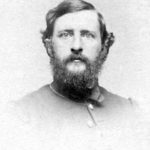
Colonel Benedict
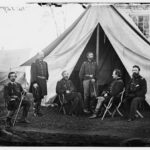
Meade and other Union generals, September 1863
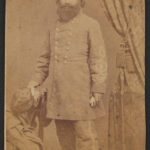
provided a Confederate take on controversy
Charles F. Benjamin, The National Tribune writer, transferred from the 38th New York Infantry to the 40th on June 5, 1863. According to the New York State Military Museum and Veterans Research Center, the 40th NY Infantry, ” As part of the 3d brigade, 1st division, 3d corps, Army of the Potomac, from May, 1863, the regiment proceeded from Chancellorsville to Gettysburg, where it again distinguished itself for bravery with a loss of 150 killed, wounded or missing.”

fighter, writer
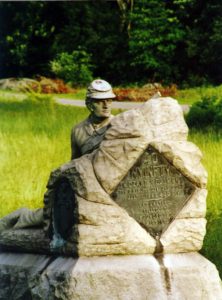
40th NY monument at Gettysburg
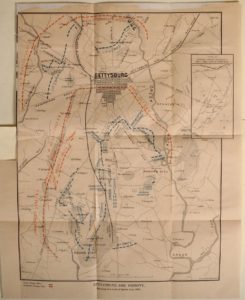
great invasion stymied
From the Library of Congress: the August 24, 1893 issueof The National Tribune; The Gouverneur Kemble Warren statue on Little Round Top – you can see some modern (color) pictures and read more about the general at Stone Sentinels; Jacob Hoke’s 1887 book, which includes the non-Jespersen map, I did not notice a reference for the Sickles-Lincoln anecdote; General Meade and others at Culpeper, Va. in September 1863, includes Warren, Hunt, and Sykes; Lafayette McLaws; cheering Sickles at Gettysburg, July 1913, the general attended the 50th anniversary commemoration.
Hal Jespersen’s map of Day 2 at Gettysburg is from Wikimedia Commons and is licensed under Creative Commons Attribution 3.0 Unported. Also from Wikimedia Commons the the photo of George Benedict; also the 40th New York Infantry monument at Gettysburg – the photo is by Carptrash and is licensed under Creative Creative Commons Attribution 3.0 Unported. The monument is situated just north of Devil’s Den. You can read a very good article about the 40th and the July 2nd battle at Emerging Civil War
[September 16, 2023}I changed the size of a couple images and noted that the picture of Sickles being cheered was at the 50th anniversary commemoration of the battle.
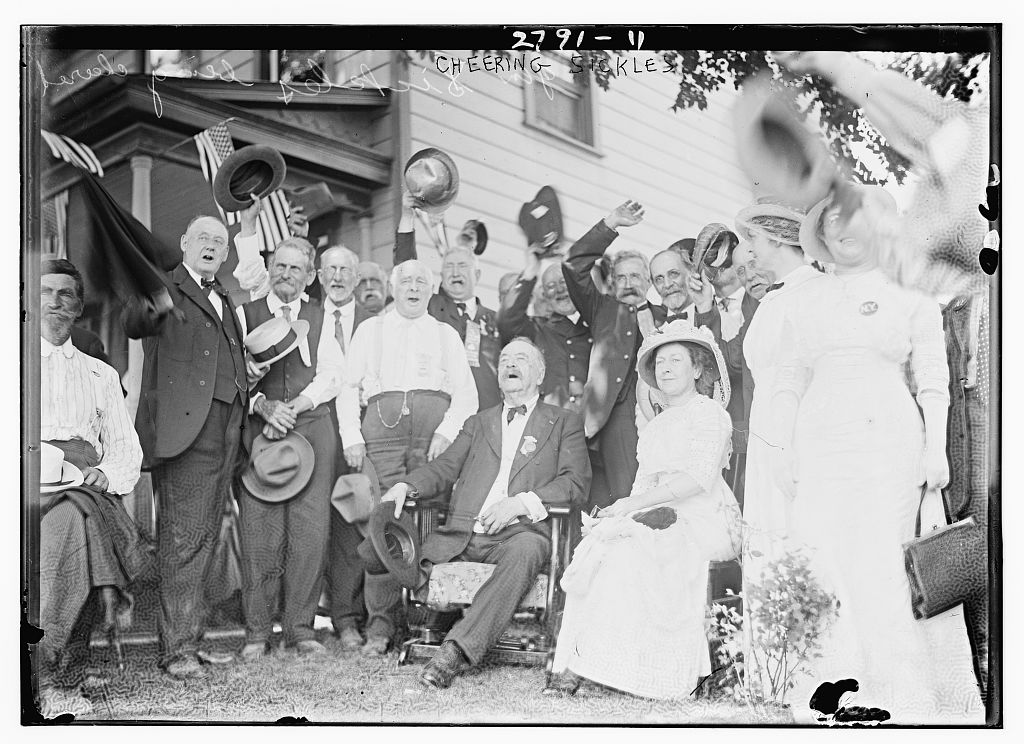
“Cheering Sickles,” Gettysburg, July 1913

